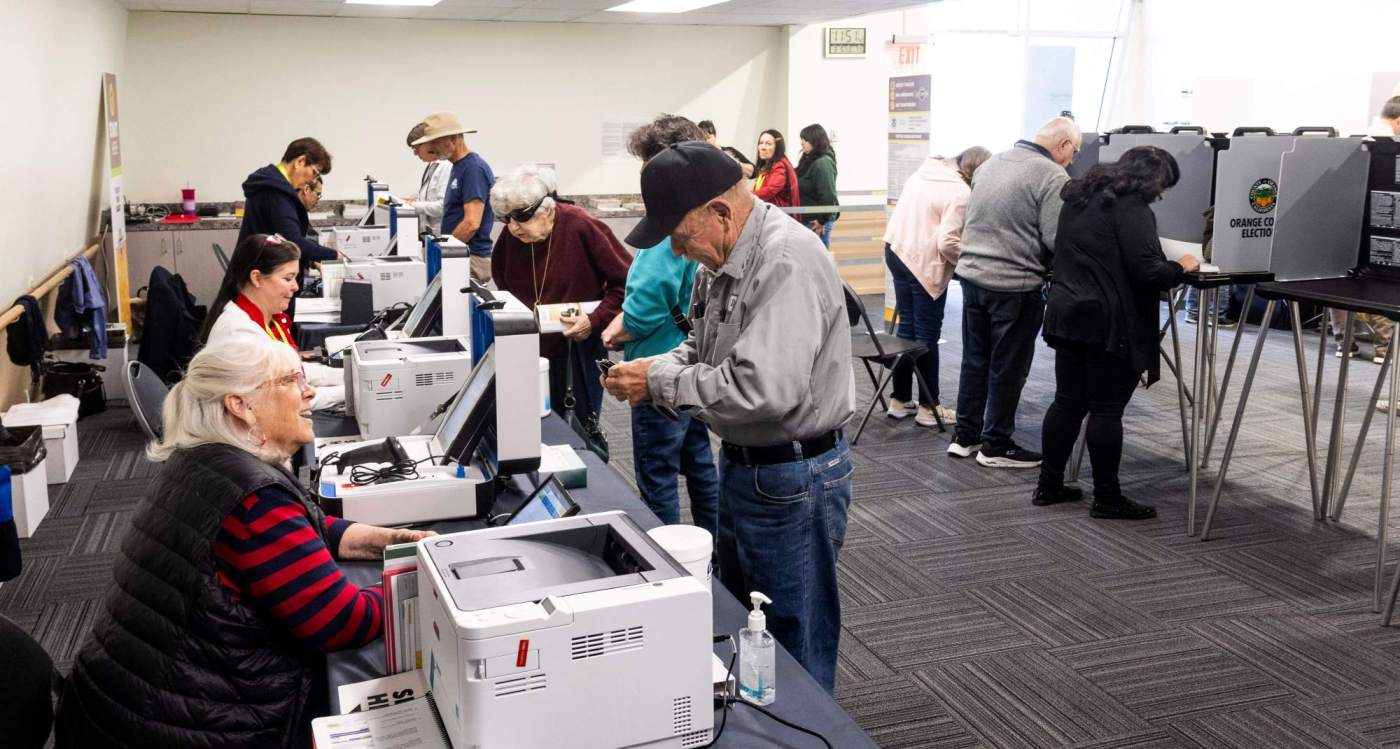The California Attorney General’s Office at a hearing Thursday, April 3, argued there is “no constitutional way” for Huntington Beach to implement its voter ID law in city elections starting in 2026.
The hearing with Orange County Superior Court Judge Nico Dourbetas was the first time lawyers from both sides were able to lay out their complete arguments on whether Huntington Beach could require voters to show identification in future city elections.
Voters in March 2024 approved Measure A, which added language to the city charter to allow Huntington Beach to begin to ask people to show identification in city elections starting in 2026.
The city has not detailed specifics of how it will implement voter ID, with councilmembers only saying they intend to do so.
Attorneys for the city, the state attorney general’s office and Mark Bixby, who publishes the Surf City Sentinel Facebook page and has sued separately from the state to block the law, appeared in person Thursday in a Superior Court hearing in Santa Ana.
Deputy Attorney General Michael Cohen said Huntington Beach’s voter ID law violates the state constitution and elections law.
“There is no constitutional way to implement this,” Cohen said.
Cohen said there are two paths the city could take with its voter ID law, and both violate state law.
One would be to still try to consolidate city elections with the county, which is what’s normally done with municipal elections throughout the state. The second would be to create separate city elections with Huntington Beach voters getting two different ballots, one for the city and one for the county, separate polling places for both elections and inconsistent rules, he said.
“That could be a disaster for the city’s voters,” Cohen said.
Anthony Taylor, an outside attorney brought onto the case after former City Attorney Michael Gates left for a job in the U.S. Department of Justice, said if there was a path for the city to implement its voter ID law legally, then the judge can’t invalidate the law.
Taylor brought up how San Francisco allows noncitizen parents to vote in school board elections as an example of existing local control over elections.
Taylor also said state elections law prohibiting voter ID requirements does not say it applies to municipal elections that are not consolidated with statewide elections.
He also brought up a recent executive order from President Donald Trump and a changing landscape at the federal level to tighten voter registration requirements that could have implications for Huntington Beach.
Attorney General Rob Bonta held a news conference Thursday discussing a multistate lawsuit against that executive order.
The state attorney general’s office first sued Huntington Beach a year ago. As the case has dragged on, the office has warned that the uncertainty surrounding Huntington Beach’s voter ID law will create confusion for voters and disrupt planning that starts later this year for the 2026 elections.
In the meantime, Gov. Gavin Newsom signed into law SB 1174, authored by former State Sen. Dave Min last year, which says no local government overseeing elections in California, including charter cities, can require voter identification when casting ballots.
Min has argued the city’s Measure A was the product of “fringe conspiracy theories,” saying Huntington Beach councilmembers have never presented evidence of widespread voter fraud necessitating voter ID.
Taylor said SB 1174 attempts to “invalidate wills of the voters,” and argued that the law was not written to be retroactively applied.
State Sen. Tony Strickland was one of the Huntington Beach councilmembers who championed Measure A and said he would push to bring voter ID statewide in the legislature. He has said “voters in Huntington Beach deserve to know, without question, that their elections are secure,” by having voter ID in place.
California verifies people’s identities when they register to vote, and some first-time voters may be asked to show a form of ID when at the polls.
Judge Dourbetas took the case under submission Thursday. He offered no suggestions for how he might rule, but asked questions throughout the hearing.
“Laws require that we have an ID to get on airplanes, that folks show an ID to get alcohol, right?” Dourbetas asked.
“Neither one of those are fundamental and sacred rights,” replied Lee Fink, an attorney for Bixby.
The case, at one point dismissed, has already been in front of an appeals court panel of judges, and lawyers have acknowledged that whatever the ruling is from Dourbetas the story won’t end there.
An appeals court panel of judges that saw some of the arguments in the case in February described Huntington Beach’s assertion that it could regulate its elections free from state interference as “problematic.”
